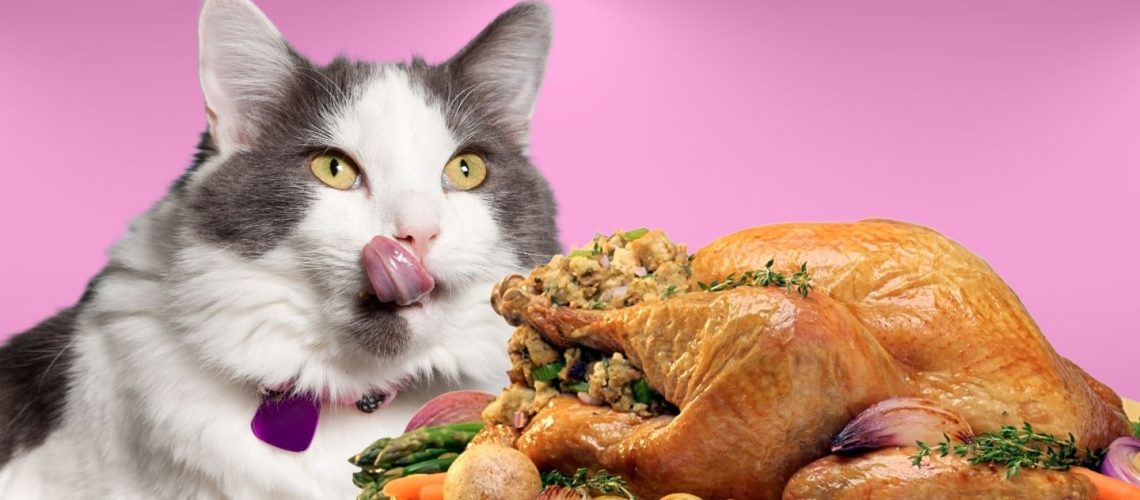Yes, cats can eat turkey in moderation as part of a balanced diet. Turkey can be a good protein source for cats, providing essential nutrients and hydration. However, it is important to feed them cooked turkey without any bones or seasonings, and in small portions to avoid digestive issues.
Benefits of Turkey for Cats
Lean Protein Source
Turkey is a lean protein source that can provide many nutritional benefits for cats. It is low in fat and provides the necessary amino acids for maintaining healthy muscles and overall body functions.
Essential Nutrient Content
Niacin
Turkey is a good source of niacin, a B-vitamin that is essential for maintaining a healthy metabolism and energy production.
Vitamin B6
Turkey also contains vitamin B6, which is important for proper brain development and function, as well as supporting the nervous system.
Phosphorus
Phosphorus is another essential nutrient found in turkey. It helps to strengthen bones and teeth, and supports kidney function.
Hydration Benefits
Turkey can also be a good source of hydration for cats, as it is about 70% water. Proper hydration is important for maintaining overall health and preventing urinary tract issues.
Risks of Feeding Turkey to Cats
Turkey Bones
Splintering and Choking Hazards
Turkey bones can splinter and create choking hazards for cats. Splintered bones can also cause internal damage to the digestive system.
Internal Damage Risks
Ingested bone fragments can potentially puncture or obstruct the gastrointestinal tract, causing severe complications and requiring veterinary intervention.
Seasonings and Additives
Harmful Ingredients
Seasonings and additives commonly used in preparing turkey, such as garlic, onions, and salt, can be harmful to cats. These ingredients can cause toxicity and lead to health issues.
Potential Toxicity
Ingredients like garlic and onion can cause anemia in cats, while excessive salt intake can lead to increased blood pressure and kidney issues.
Overfeeding Risks
Digestive Issues
Feeding too much turkey to cats can cause digestive issues such as vomiting or diarrhea.
Weight Gain and Obesity
Excessive consumption of turkey can also contribute to weight gain and obesity, which can lead to other health issues like diabetes and heart disease.
Safe Feeding Guidelines for Cats
Portion Size Considerations
When feeding turkey to cats, it is important to monitor their portion size to avoid overfeeding. Plain, cooked turkey can be used as a treat or part of a complete and balanced meal.
Treat Frequency
Feeding turkey as a treat should be limited to occasional use to prevent overconsumption and maintain a well-balanced diet.
Importance of Balanced Diet
In addition to providing lean protein, it is essential to ensure that cats receive all necessary nutrients from their diet, including vitamins, minerals, and appropriate fat content.
Monitoring Overall Food Intake
Keeping track of your cat's overall food intake, including treats, can help prevent obesity and maintain optimal health.
Alternatives to Turkey for Cats
Other Lean Protein Sources
If you're looking for alternatives to turkey, other lean protein sources like chicken or fish can also be fed to cats in moderation.
Commercial Cat Food Options
A well-formulated commercial cat food will provide all the necessary nutrients for your cat, so occasional treats like turkey should not serve as the primary food source.
Conclusion
In conclusion, cats can safely eat turkey in moderation as part of a balanced diet. It is important to feed them cooked turkey without any bones or seasonings and in small portions to avoid digestive issues. By following these guidelines, turkey can be a healthy and enjoyable treat for your feline friend. Remember to monitor their overall food intake and maintain a well-balanced diet for optimal health.











